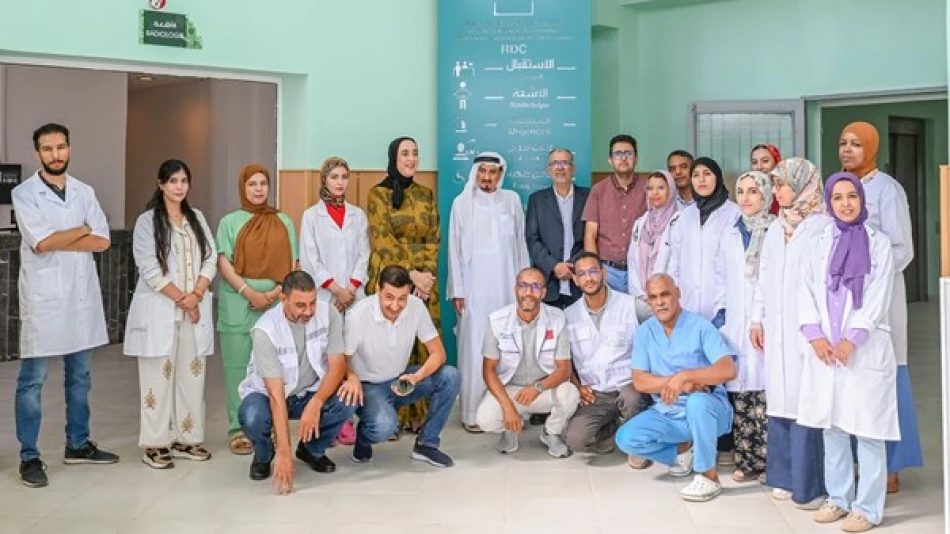
Emirati Ruler Visits Rabat Hospital, Praises its High-Quality Medical Services
UAE-Morocco Healthcare Diplomacy Takes Center Stage as Ajman Ruler Visits Rabat Medical Facility
Sheikh Hamid bin Rashid Al Nuaimi, Ruler of Ajman and member of the UAE Supreme Council, conducted a strategic visit to a key medical emergency hospital in Morocco's capital Rabat, signaling deepening healthcare cooperation between the two nations. The visit underscores the UAE's expanding soft power strategy through medical diplomacy and reflects growing Gulf investment in North African healthcare infrastructure.
Strategic Healthcare Partnership in Focus
Accompanied by Sheikh Rashid bin Hamid Al Nuaimi, Chairman of Ajman Municipality and Planning Department, the Ajman ruler toured the Ain Aouda Medical Emergency Hospital with its integrated maternity ward. The facility represents a critical healthcare node in the Rabat region, handling multiple daily cases including emergency births and providing comprehensive medical services to local communities.
During the inspection, Sheikh Hamid examined the maternity, emergency, and specialized clinic departments, reviewing advanced medical equipment that hospital administrators described as reflecting cutting-edge healthcare standards. The ruler received detailed briefings on medical services provided to residents and the facility's role in delivering urgent and specialized care.
Investment Philosophy: Health as National Security
Sheikh Hamid's remarks during the visit revealed a broader strategic vision linking healthcare investment to national development. "Investment in human health is an investment in the future of nations," he emphasized, positioning robust healthcare systems as fundamental pillars of sustainable development rather than mere social services.
This perspective aligns with the UAE's domestic healthcare transformation over the past two decades, where massive infrastructure investments have positioned the Emirates as a regional medical hub attracting patients from across the Middle East and Africa.
Regional Healthcare Diplomacy Gains Momentum
The Ajman ruler's call for expanded healthcare cooperation between the UAE and Morocco reflects a broader trend of Gulf states leveraging medical expertise and capital for diplomatic influence. This approach mirrors similar initiatives by the UAE in countries like Egypt, Jordan, and Pakistan, where Emirati medical investments have strengthened bilateral relationships.
Morocco's Strategic Healthcare Positioning
For Morocco, deeper healthcare ties with the UAE offer access to advanced medical technologies and management expertise that could accelerate the kingdom's own healthcare modernization efforts. The North African nation has been pursuing healthcare sector reforms as part of broader economic diversification strategies, making partnerships with Gulf medical leaders particularly valuable.
Implications for Future Cooperation
The visit suggests potential expansion of UAE medical investments in Morocco, possibly including technology transfers, training programs for medical personnel, or joint healthcare ventures. Such cooperation could establish Morocco as a healthcare hub for French-speaking Africa, leveraging UAE expertise and Moroccan linguistic and cultural advantages in the region.
The emphasis on sustainable development through healthcare investment also indicates alignment with international development goals, potentially attracting multilateral funding for future UAE-Morocco medical projects. This strategic approach positions both nations to benefit from growing global health security concerns and increased international healthcare spending.
Most Viewed News

 Layla Al Mansoori
Layla Al Mansoori






